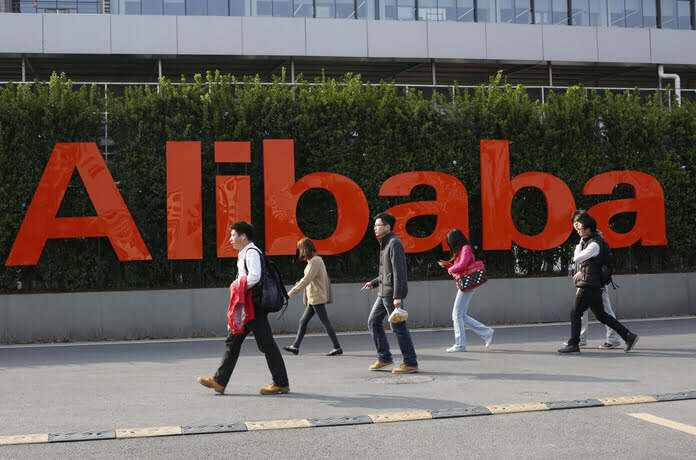Alibaba Group Holding Ltd. (NYSE:BABA) has greenlit a substantial $25 billion stock repurchase program in an attempt to mollify investors concerned about stagnant growth at the pioneering Chinese e-commerce and cloud company, facing stiff competition from the likes of PDD Holdings Inc.
The company’s board has expanded an existing buyback initiative, already one of China’s largest, which saw about $9.5 billion allocated last year alone. However, despite this move, Alibaba’s U.S.-traded shares plunged by 6% in New York midday trading, relinquishing initial gains, primarily due to investor apprehensions regarding diminishing Chinese consumer spending and a decline in per-user expenditure.
Alibaba continues to grapple with fundamental questions surrounding its status as a once-dominant internet powerhouse, indicative of China’s demand trends. Its recent performance underscores a loss of market share to competitors like PDD and ByteDance Ltd., with a disappointing 5% revenue increase in the December quarter to 260.3 billion yuan ($36.2 billion), significantly below previous years’ growth rates, while net income plummeted by 70%.
Adding to the uncertainty, the company is undergoing a complex multi-pronged restructuring aimed at creating several independent businesses and revitalizing the national icon. Plans outlined last year to list its Freshippo grocery chain and Cainiao logistics arm have been sidelined, with Chairman Joseph Tsai citing unfavorable market conditions hindering fair valuations for these ventures. Alibaba, which has amassed a vast portfolio of assets through years of frenetic investment, is now actively exploring divestment options for non-core holdings, including the InTime department store chain and other retail operations, as reported by Bloomberg News.
“We have a number of traditional physical retail businesses on our balance sheet. And these are not our core focus. It will make sense for us to exit these businesses,” Tsai told analysts on a conference call. “This will take time given the challenging market conditions, but we’ll continue to work on it.”
Alibaba is endeavoring to recover from years of regulatory scrutiny and strategic missteps that have dented its position as a leader in China’s tech industry. Co-founder Jack Ma’s call in November to rectify the company’s trajectory has prompted a thorough reassessment.
As it navigates asset sell-offs and potential spin-offs, Alibaba aims to refocus on its core e-commerce business and cloud computing operations. However, it faces stiff competition from emerging players like ByteDance’s Douyin and PDD, necessitating bold moves and streamlining efforts. Alibaba’s executives, including CEO Eddie Wu and Chairman Joseph Tsai, are spearheading these efforts following the abrupt departure of former CEO Daniel Zhang.
In addition to the latest buyback initiative, Alibaba’s executives have pledged aggressive shareholder returns, targeting an annual repurchase of 3% of outstanding stock, amounting to roughly $12 billion annually. This move aims to reduce the number of shares outstanding and boost earnings per share.
However, challenges persist as Alibaba seeks to rejuvenate its core commerce business and bolster its AI and cloud capabilities amidst fierce competition and shifting market dynamics. The company remains focused on expanding its presence in overseas markets and advancing its AI initiatives, despite initial setbacks.
Featured Image: Megapixl















